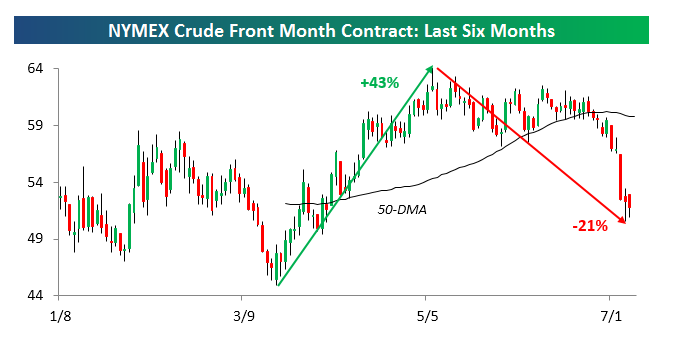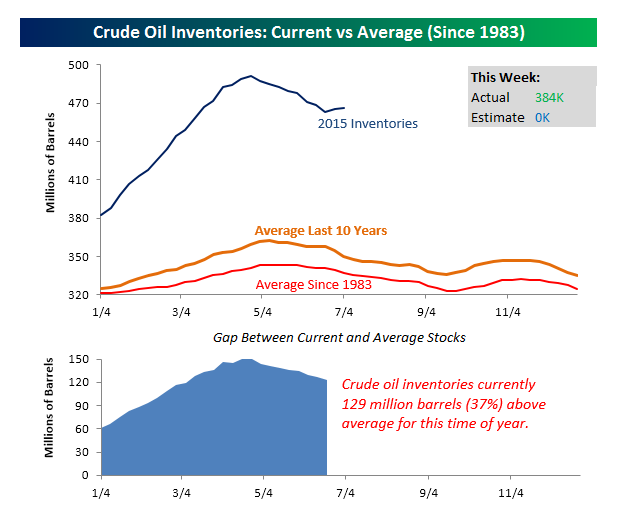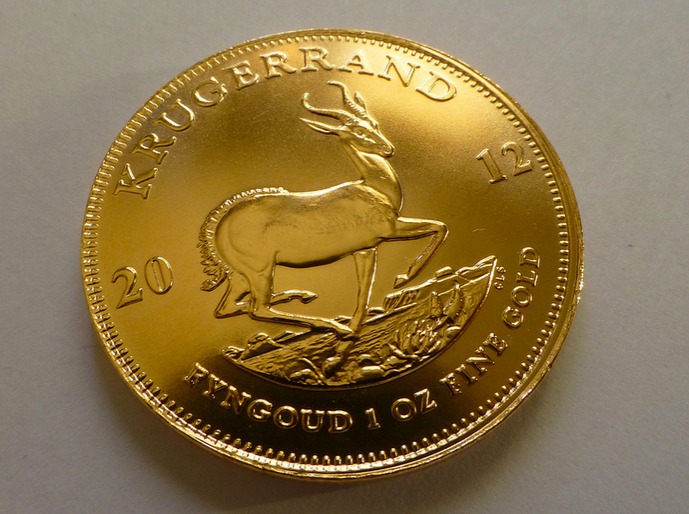Greece? The four-week rout in Chinese stock market prices is what should really unnerve global investors.
If the $3.5 trillion in lost market value at the Shanghai and Shenzhen stock exchanges spills over into the real Chinese economy, the effects will be felt far and wide.
That’s especially true in the commodities markets.

China’s Reach
Even before the stock market blowout in China, the world’s second biggest economy was growing at its slowest pace since 1990.
China is the No. 1 global consumer of energy, metals and grains.
The Bloomberg Commodities Index, which tracks 22 raw materials including oil, wheat, cotton, coffee and gold, is down more than 6 percent so far in 2015.
Bear Market
On July 8, as China stocks fell nearly 6% in Shanghai, the S&P 500 Energy sector broke down to a new 52-week low that same day.
It also looks like the recent rally in crude oil prices is finished for now.
Crude oil entered into a bear market after it fell more than 20% from early May.

Inventory Glut
On top of the China blowout and global economic concerns is the huge spike in oil inventories.
Crude oil inventories are currently more than 37% above average, according to Bespoke Investment Group.

Takeaway
The biggest global business story isn’t the Greek debt crisis but a slowing China.
It’s a $10 trillion economy with a global reach and the stock market instability is worrisome.
China’s central bank is trying to halt the slide in domestic stock prices.
Wish them luck.
Photo credit: Matt Paish via Flickr Creative Commons

